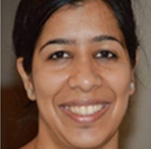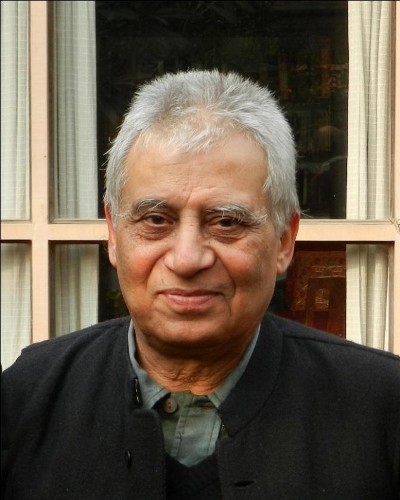Webinar 13: Decentralized Wastewater Treatment and Local Reuse for Citywide Sanitation and Improved River Health
Date: 13th August 2020 (4.00- 6.00pm IST)
Webinar
Poor sanitation and wastewater management in developing countries leads to the contamination of fresh water sources and has a major impact on public health and eco-system as a whole. Around 80 percent of the wastewater generated in developing countries is discharged directly into surface water bodies without any treatment. Inadequate domestic sewage treatment is resulting poor sanitation cities and also has been highlighted as a main reason for increasing number of polluted river stretches across river basins in India (SoE Data & Number / CPCB). Decentralized wastewater treatment systems is based on the important principle – devolving level of the application in that sewage can be treated at affordable costs by cutting the cost of pumping long distances and promoting local reuse of treated wastewater resulting in restoring the wholesomeness of the river defined in terms of ensuring “Aviral Dhara” (Continuous Flow”), “Nirmal Dhara”(“Unpolluted Flow”), Geologic and Ecological Integrity. National Green Tribunal has set up a committee under Ministry of Jal Shakti to review efforts of states across India and in particular Ganga basin states on river pollution abatement and a Committee for monitoring rejuvenation of river Yamuna has been formed. Ministry of Housing and Urban Affairs has also come out with an advisory on ‘On-site and offsite sewage management practices in India context’.
Centre for Science and Environment (CSE) assists the Ministry of Housing of Urban Affairs as designated Centre of Excellence in Sustainable Urban Water Management area and also with National Mission for Clean Ganga, Ministry of Jal Shakti to mainstream effective septage and sewage management and has been supporting the efforts of Mission towards improving the river health.
Several innovative nature based unnetworked technologies based sewage treatment projects and decentralized approach to wastewater treatment and local reuse have been implemented by CSE in a web based compendium ‘MOUNT – Menu of Un-networked Technologies’. This compendium documents the successfully implemented projects that are a ready reckoner for decision makers as well as practitioners as well as those who want to learn more about these systems or take up similar projects. However, a number of challenges and governance issues still exist for wider application of the approach, such as - lack of recognition, coordination between governmental agencies, lack of dedicated budget and human resources, loopholes in the establishment, handover and monitoring procedures, operation & maintenance, effluent standards, insufficient integration in water reuse planning, lack of awareness and loopholes in the policy framework and institutional mechanism etc.
School of Water and Waste - Centre for Science and Environment (CSE) is organizing this webinar to sensitize key stakeholders about the approach of decentralized wastewater treatment, its applications, experiences in Global South and challenges for wider application.
Target Audience: Urban Local Bodies, Public Health Departments, Regulators and Managers of Water Supply and Sewerage Boards / Utilities, Practitioners (Architect / Engineers / Landscape Architects and other), Academics, Researchers, NGOs, Resident Welfare Association and other key actors involved in advocacy for sustainable water management in India and the Global South.
Webinar Coordinator:
Dr Mahreen Matto
Programme Manager, Water Programme, CSE
Email: mahreen@cseindia.org
| Draft Agenda | |
 |
|
| Menu On Un-Networked Technologies (MOUNT) 2.0 | |
 |
|
| Handbook on Operation & Maintenance of DWWTs | |
 |
|
| Webinar Recording | |
| Proceedings of Webinar | |
| Presentations | |
| Phytorid and RENEU for Decentralized Wastewater Treatment By: Dr Rakesh Kumar, CSIR-NEERI |
|
| Integrated Wetland Technology – A Natural way of Sewage Treatment By: Mr Indra Kant Jha, Emergy Enviro |
|
| Decentralized Wastewater Reuse via CAMUS-SBT By: Dr Chandrashekar Shankar, Vision Earthcare Pvt Ltd |
|
| CDD's DEWATS experience Learnings and Challenges By Mr Ganapathy PG, CDD Society |
|
| Small-Scale Sewage Treatment and Reuse Systems in India Taking the Lead through Effective Governance Interventions bY: Mr Philippe Reymond and Mr Lukas Ulrich, EAWAG |
|
| Keynote Address | |
 |
Mr. Rajiv Ranjan Mishra (IAS) Director General, National Mission for Clean Ganga |
| Moderator/Anchor | |
 |
Dr Suresh Rohilla Senior Director, Centre for Science & Environment |
 |
Mahreen Matto Programme Manager, CSE |
| Speakers | |
 |
Dr Rakesh Kumar Director, CSIR-National Environmental Engineering Research Institute (CSIR-NEERI), Nagpur BIO |
 |
Mr Indra Kant Jha Technical Head, Emergy Enviro Mumbai BIO |
 |
Dr Chandrashekar Shankar CEO and Director of Research and Product Development at Vision Earthcare Pvt Ltd Mumbai BIO |
 |
Mr Ganapathy P G Director of Programmes, CDD Society, Bengaluru BIO |
 |
Mr Philippe Reymond Project Manager, Vuna, Dübendorf BIO |
 |
Mr Lukas Ulrich Independent Consultant, Dübendorf BIO |
| Discussants | |
 |
Mr Radheshyam Tyagi Former Member (Drainage), Delhi Jal Board |
 |
Mr Vijay Kumar Chaurasia Joint Advisor (PHEE), CPHEEO, MoHUA, Govt. of India |
 |
Mr. Munishwar Nath Ashish Ganju Architect |
| Flyer | |
 |
|
| Download flyer | |


Share this article